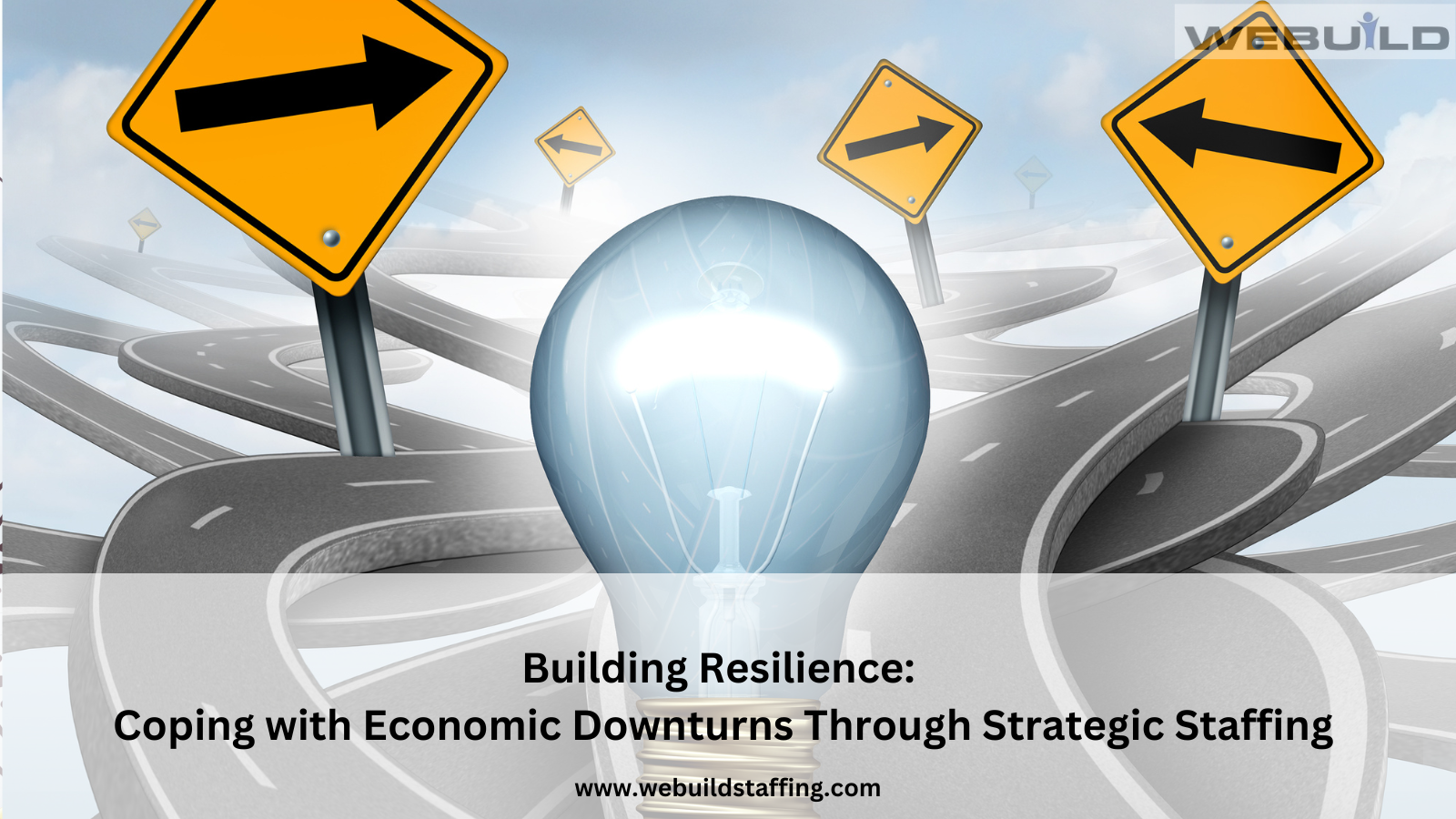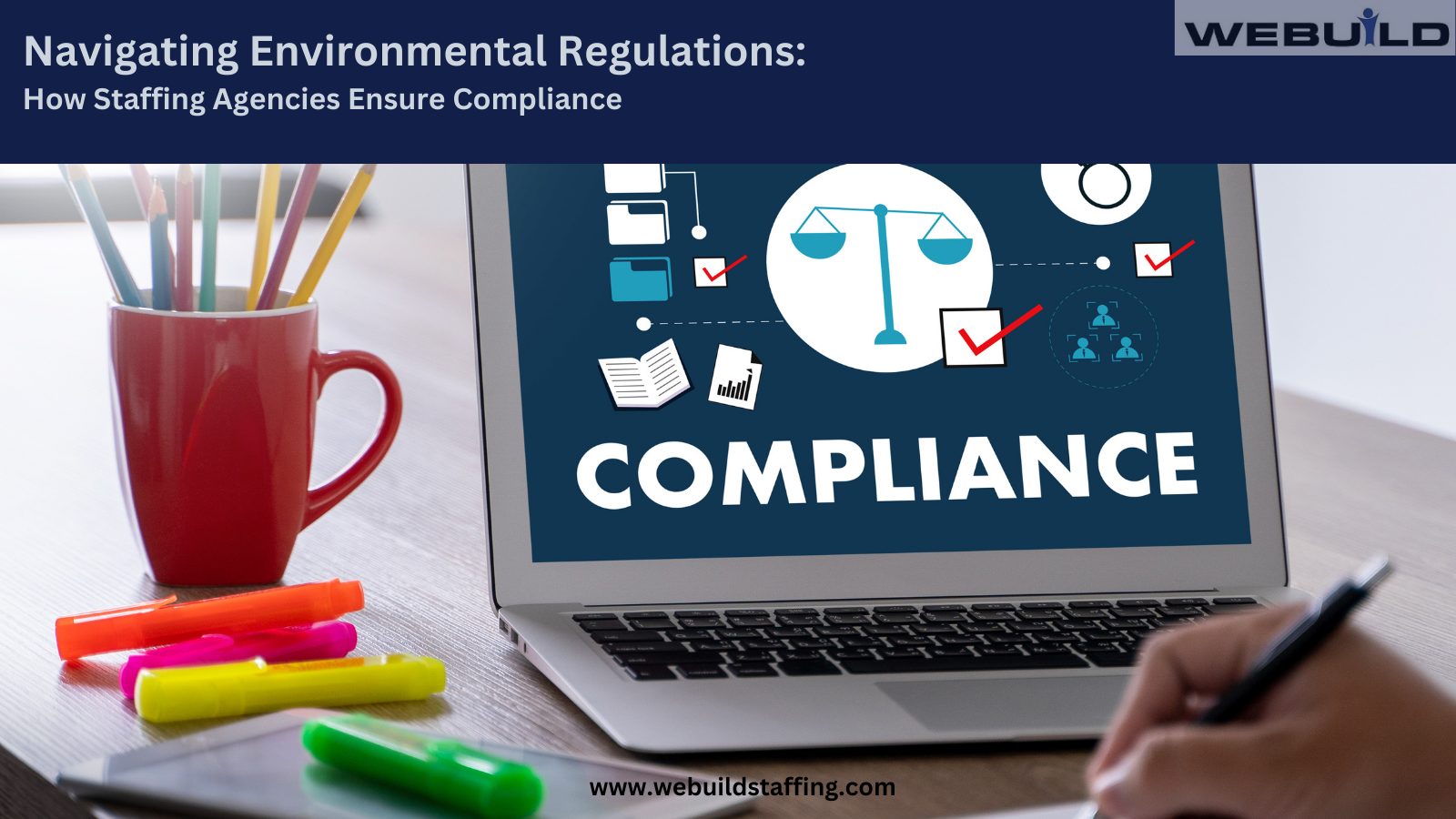Building Resilience: Coping with Economic Downturns Through Strategic Staffing
WEBUILD STAFFING BLOG |
Building Resilience: Coping with Economic Downturns Through Strategic Staffing

Economic downturns are an inevitable part of the business cycle, impacting industries worldwide, including the construction sector. During periods of economic uncertainty, construction companies often face challenges such as reduced demand, shrinking budgets, and increased competition. In such turbulent times, strategic staffing becomes essential for building resilience and navigating through the storm. Understanding strategies and best practices that construction companies can employ to cope with economic downturns through strategic staffing can make a significant difference in how your organization will perform.
Understanding Economic Downturns in the Construction Industry:
Economic downturns in the construction industry are typically characterized by a decline in construction activity, reduced investment in infrastructure and real estate projects, and tighter credit conditions. These downturns can be triggered by various factors, including changes in government policies, fluctuations in interest rates, shifts in consumer demand, and global economic instability. Regardless of the cause, economic downturns present significant challenges for construction companies, requiring them to adapt and innovate to survive and thrive in a challenging business environment.
Challenges Posed by Economic Downturns:
- Reduced Demand: During economic downturns, demand for construction services typically declines as clients postpone or cancel projects due to budget constraints or uncertainty about future market conditions. This reduction in demand can lead to decreased revenue, lower profit margins, and increased competition for a shrinking pool of projects.
- Cash Flow Constraints: Economic downturns often result in cash flow constraints for construction companies, as delayed payments, project cancellations, and tighter credit conditions impact their ability to cover operating expenses, meet payroll obligations, and invest in growth initiatives.
- Workforce Reductions: To mitigate the financial impact of economic downturns, construction companies may be forced to implement workforce reductions, including layoffs, furloughs, and hiring freezes. These workforce reductions can have a negative impact on morale, productivity, and employee engagement, further exacerbating the challenges faced by the company.
- Supply Chain Disruptions: Economic downturns can disrupt the construction industry’s supply chain, leading to delays in materials procurement, price fluctuations, and supply shortages. These disruptions can affect project timelines, costs, and quality, adding complexity to project management and execution.
Strategies for Coping with Economic Downturns Through Strategic Staffing:
While economic downturns present challenges for construction companies, they also present opportunities for strategic staffing initiatives that can help build resilience and position the company for long-term success. Here are some strategies for coping with economic downturns through strategic staffing:
Implement Flexible Staffing Models:
During economic downturns, construction companies should consider implementing flexible staffing models that allow them to adjust their workforce size and composition based on project demand and market conditions. Flexible staffing models may include the use of temporary workers, subcontractors, and contingent labor to supplement core staff and scale up or down as needed to meet project requirements.
Invest in Training and Development:
Investing in training and development initiatives can help construction companies upskill their existing workforce and prepare them for new roles and responsibilities. Training programs may focus on emerging technologies, safety protocols, project management skills, and leadership development to equip employees with the skills and knowledge needed to succeed in a changing business environment.
Focus on Retaining Top Talent:
During economic downturns, retaining top talent becomes critical for construction companies looking to maintain their competitive edge and position themselves for recovery. Companies should focus on creating a positive work environment, offering competitive compensation and benefits, and providing opportunities for career advancement and professional growth to retain their most valuable employees.
Diversify Service Offerings:
Diversifying service offerings can help construction companies mitigate the impact of economic downturns by expanding their market reach and reducing dependence on a single sector or client base. Companies may explore opportunities in new markets, industries, or geographic regions, or diversify into related services such as maintenance, renovation, and facilities management to generate additional revenue streams.
Leverage Technology and Automation:
Embracing technology and automation can help construction companies improve efficiency, reduce costs, and enhance productivity during economic downturns. Companies may invest in digital tools and software solutions for project management, scheduling, budgeting, and communication to streamline operations and optimize resource utilization.
Cultivate Strategic Partnerships:
Cultivating strategic partnerships with other construction firms, suppliers, subcontractors, and industry associations can help construction companies weather economic downturns by sharing resources, expertise, and market intelligence. Strategic partnerships may involve joint ventures, alliances, or collaborations on specific projects or initiatives to maximize opportunities and mitigate risks.
Maintain a Strong Financial Position:
Maintaining a strong financial position is essential for construction companies to withstand the financial challenges posed by economic downturns. Companies should focus on managing cash flow, controlling costs, and diversifying revenue sources to ensure liquidity and financial stability during periods of uncertainty.
Case Studies:
Several real-world case studies illustrate the successful implementation of strategic staffing initiatives during economic downturns:
Thompson Construction Company:
Thompson Construction Company, a mid-sized general contractor, implemented a flexible staffing model during the 2008 financial crisis to cope with reduced project demand. The company utilized a combination of temporary workers, subcontractors, and contingent labor to adjust its workforce size and composition based on project requirements. By leveraging a flexible staffing model, Thompson Construction Company was able to maintain its workforce flexibility, reduce overhead costs, and remain competitive in a challenging market environment.
ALPHA Engineering Firm:
ALPHA Engineering Firm, a structural engineering firm, invested in training and development initiatives during the COVID-19 pandemic to upskill its workforce and adapt to remote working conditions. The company offered online training programs, virtual workshops, and certification courses to equip employees with the skills and knowledge needed to succeed in a remote work environment. By investing in training and development, ALPHA Engineering Firm was able to enhance employee morale, productivity, and job satisfaction during a period of uncertainty.
In conclusion, economic downturns present significant challenges for construction companies, but they also present opportunities for strategic staffing initiatives that can help build resilience and position the company for long-term success. Strategic staffing is not just about surviving economic downturns; it’s about thriving and seizing opportunities for growth and innovation in a rapidly changing business landscape.
Webuild Staffing Agency is a leading executive search and staffing agency dedicated to the construction, engineering and environmental industries. To learn more please visit: www.webuildstaffing.com










